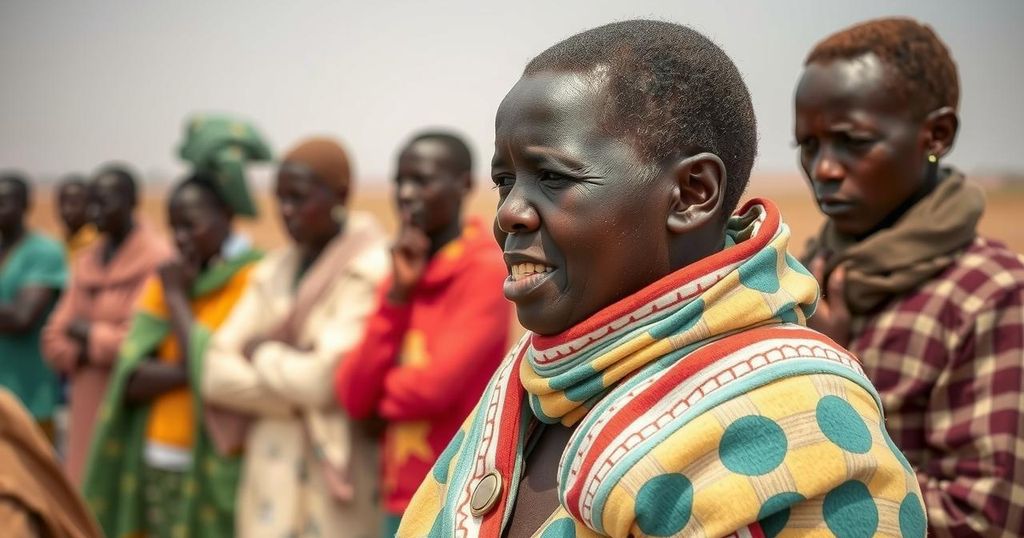Sudan Government Denies UN-Backed Famine Report Amid Ongoing Crisis

The Sudanese government has rejected a UN-supported report indicating famine across five regions due to the ongoing conflict with paramilitary forces. The report states that 638,000 individuals are in famine conditions, while 8.1 million are on the brink of mass starvation. The government claims the IPC’s findings are speculative and criticized the lack of governmental consultation prior to the report’s publication.
The Sudanese government has outrightly dismissed a United Nations-backed report which classified five regions of the country as experiencing famine. According to the Integrated Food Security Phase Classification (IPC) review, the ongoing conflict between Sudan’s military forces and the paramilitary Rapid Support Forces has led to famine conditions affecting approximately 638,000 individuals, with an estimated 8.1 million others on the verge of mass starvation. The government criticized the report as “essentially speculative” and claimed that the IPC had not consulted with their technical team or had access to the latest field data before finalizing their findings.
Since the capital, Khartoum, transformed into a battlefield in April 2023, the government, aligned with army chief Abdel Fattah al-Burhan, has established its base in Port Sudan. It has been frequently accused of obstructing international assessments of the food insecurity crisis and imposing bureaucratic barriers to humanitarian operations while denying visas to foreign relief teams. The International Rescue Committee has expressed concern that the military is utilizing its status as the recognized government to prevent United Nations access to RSF-controlled territories. Additionally, both the military and the RSF have been alleged to employ starvation as a tactic in their conflict. The war has resulted in the deaths of tens of thousands and displaced over 12 million people, of which 24.6 million, roughly half the country’s population, face severe acute food insecurity.
The ongoing conflict in Sudan between the national army and the paramilitary Rapid Support Forces has dramatically escalated humanitarian crises within the nation. Since April 2023, when armed conflict erupted in the capital Khartoum, the situation has further deteriorated, leading to widespread food shortages and increasing levels of food insecurity. The Integrated Food Security Phase Classification (IPC) is a widely recognized system utilized to assess and classify food security conditions on the ground, serving as a crucial tool for international humanitarian agencies. The Sudanese government’s rejection of IPC’s findings illustrates a broader struggle between governmental and international perspectives on the crisis, thereby complicating efforts to deliver aid to affected populations.
In summary, the Sudanese government’s rejection of the UN-backed IPC report highlights the contentious dynamics at play amid the ongoing conflict in Sudan. This dismissal raises significant concerns regarding humanitarian access and the delivery of aid to millions facing acute food insecurity. The situation is further exacerbated by the bureaucratic hurdles imposed by the administration, complicating international efforts to alleviate the suffering of those impacted by war and food scarcity. Vigilance and proactive intervention from the global community remain essential as the humanitarian crisis continues to unfold.
Original Source: jordantimes.com








